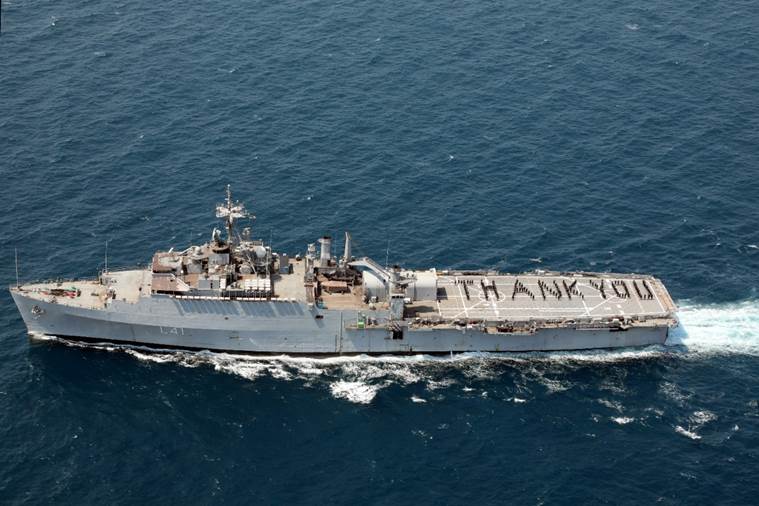The government will for the first time charge Indian nationals who are being evacuated by Indian Navy ships. Earlier evacuation operations by the Navy were not charged to the passengers.
The Indian High Commission in Male told the stranded Indians on Thursday that they will have to pay $40 — about Rs 3,028 — as “evacuation services charge” for repatriation by INS Jalashwa on Friday.

In February-March 2011, during the Arab spring, when an operation to evacuate 16,400 Indians was carried out from Libya, Indian Navy ships INS Jalashwa, INS Mysore and INS Aditya were pressed into service, but no payment was charged from the evacuees.
Story continues below this ad
The decision to charge Indians this time flows from the Home Ministry’s guidelines, which said, “The cost of travel, as specified by Civil Aviation Ministry or Department of Military Affairs will be borne by such travellers.”
While Air India is charging for the evacuation of Indians from different parts of the world, the Indian Navy or Air Force has never charged Indians for evacuating them.
Constantino Xavier, a Fellow (foreign policy) at the New Delhi-based think tank Brookings India, told The Indian Express, “Involving the Navy in repatriation poses a dilemma. It will probably make for bad optics to see Indian citizens paying their way on to an Indian Navy ship to ensure safe passage home, which would also go against the military’s ethos of service. On the other hand, if they are exempted from the pay-per-use principle set out by MHA/MEA, there will be resentment among citizens from other countries that will have to buy their way home on an Air India plane,” he said, pointing out that citizens in Male come home free on INS, but from Dhaka have to pay Rs 12,000.
“In any case, militaries are usually involved only as an auxiliary force when evacuation operations are held in a volatile security context, especially in conflict areas, as in Yemen (2015). In the current crisis, with the government focusing on a civilian evacuation on commercial basis in peacetime, it may make more sense to use the Indian Navy and Air Force to deliver supplies, medical relief, and safe passage,” he said.
Story continues below this ad
In his paper on “India’s Expatriate Evacuation Operations: Bringing the Diaspora Home” published at Carnegie India in January 2017, Xavier — who has done research on every Indian evacuation operation from 1947 to 2016 — wrote, “The navy has, in many ways, already taken the lead, with its 2007 maritime strategy listing ‘actions to assist the Indian diaspora and Indian interests abroad’ as a ‘likely scenario’ for the use of military force.” In the paper, Xavier quoted the then Navy chief Admiral N K Verma in 2011, who described these evacuation ops as a “new priority”.
According to the Navy, it has launched Operation “Samudra Setu” — meaning “Sea Bridge”, as part of a national effort to repatriate Indian citizens from overseas. Indian Naval Ships Jalashwa and Magar will evacuate 1,000 people, keeping in mind COVID-related social distancing norms vis-a-vis the carrying capacity and medical facilities available onboard. “The evacuated personnel will be disembarked at Kochi, Kerala, and entrusted to the care of state authorities,” it said.

 INS Jalashwa displayed a ‘thank you’ message to honour the frontline workers in fighting Covid-19.
INS Jalashwa displayed a ‘thank you’ message to honour the frontline workers in fighting Covid-19.






